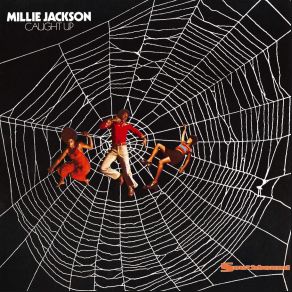Caught Up
Download links and information about Caught Up by Millie Jackson. This album was released in 1974 and it belongs to Hip Hop/R&B, Soul genres. It contains 13 tracks with total duration of 52:59 minutes.

|
|
|---|---|
| Artist: | Millie Jackson |
| Release date: | 1974 |
| Genre: | Hip Hop/R&B, Soul |
| Tracks: | 13 |
| Duration: | 52:59 |
| Buy it NOW at: | |
| Buy on iTunes $9.99 | |
| Buy on Amazon $9.16 | |
| Buy on Amazon $9.49 | |
Tracks
[Edit]| No. | Title | Length |
|---|---|---|
| 1. | (If Loving You Is Wrong) I Don't Want To Be Right | 3:57 |
| 2. | The Rap | 5:52 |
| 3. | (If Loving You Is Wrong) I Don't Want To Be Right (Reprise) [Reprise] | 1:13 |
| 4. | All I Want Is a Fighting Chance | 2:41 |
| 5. | I'm Tired of Hiding | 3:48 |
| 6. | It's All Over But the Shouting | 3:20 |
| 7. | So Easy Going, So Hard Coming Back | 3:49 |
| 8. | I'm Through Trying To Prove My Love To You | 5:44 |
| 9. | Summer (The First Time) | 5:48 |
| 10. | I'm Tired of Hiding (Alt Version) | 3:54 |
| 11. | I'm Through Trying To Prove My Love To You (Alt Version) | 4:42 |
| 12. | Feel Like Making Love | 4:32 |
| 13. | A House For Sale (featuring The Muscle Shoals Swampers) | 3:39 |
Details
[Edit]Taking the drama of a love triangle to logical extremes, Millie Jackson's Caught Up turns the pitfalls of tainted love into the basis for a concept album (the seeds for soul music's explicit treatment of the topic having been planted by James Carr's "Dark End of the Street"). While the "other woman's" view is taken up initially on cuts like the R&B hit "If Loving You Is Wrong I Don't Want to Be Right," the wife's plight is covered on the second half of the disc with revealing titles like "It's All Over but the Shouting." Jackson also delivers some of her patented racy commentary on the appropriately named "The Rap," while showing equal vigor in the album's wealth of fine vocal performances, including an impressive cover of Bobby Womack's "I'm Through Trying to Prove My Love to You." Caught Up's standout track, though, is the version of Bobby Goldsboro's "Summer" that closes the record. Seemingly out of sync with the overriding concept, the song touches upon a girl's loss of innocence to an older man. One soon realizes, though, that beyond sexual awakening, Jackson is really emphasizing the point of no return: After the epiphany, one is sent hurdling toward the power struggles and politics of adult relations, including, potentially, the moral crossroads of infidelity. Luckily, as soon as your mind overloads from pop semiotics, the in-the-pocket grooves supplied by the Muscle Shoals Swampers provides the needed salve. Jackson shows both brains and soul on this fine release, creating what might be the only concept album one can dance and drink to.